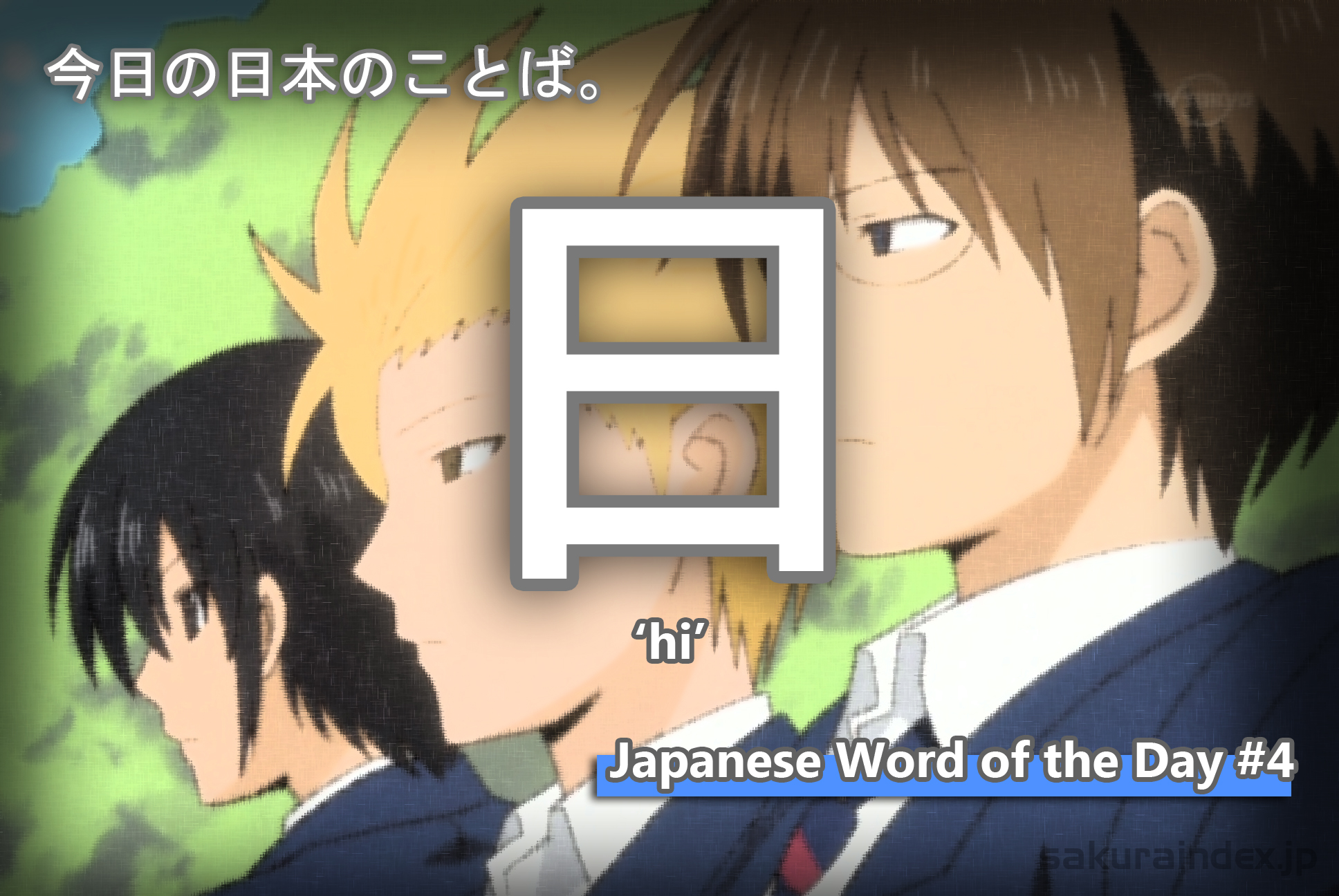Word: ひ
Kanji: 日
Romaji: Hi
Type: Noun
Meaning: A day
This has probably been used countless times in any Japanese conversation, more than you thought it had been. The kanji 日also represents the sun, the same character that you see in 日本(Japan). This can also be used as a radical, and most of the time can be read as “bright”. It can be read in a variety of ways, but one thing to remember about this is that when 日is used with another kanji character, it’s talking something related to a day.
Kanji Dissection:
Onyomi (Chinese reading) – にち (nichi), か (ka)
Kunyomi (Japanese reading) ひ・び (hi / bi)
*To be honest, this has got to be one of the most confusing kanji characters known in terms of pronunciation, but the ones there are used most often.
Examples:
あの日 (あのひ / ano + hi) – that day
毎日(まいにち / mai + nichi) – everyday
今日(きょう / kyou) – today
昨日 (きのう / kinou) – yesterday
誕生日 (たんじょうび / tan + jou + bi) – birthday
In addition to this, you can tell the days of the week by adding the prefix of each day with 日 with the pattern ____曜日(____ようび / _____youbi). In this particular case, 曜日serves as a counter for the days of the week:
月曜日(げつようび / getsu + you + bi) – Monday
火曜日(かようび / ka + you + bi) – Tuesday
水曜日(すいようび / sui + you + bi) – Wednesday
木曜日(もくようび / moku + you + bi) – Thursday
金曜日(きにょうび / kin + you + bi) – Friday
土曜日(どようび / do + you + bi) – Saturday
日曜日(にちようび / nichi + you + bi) – Sunday
Aside from this, 日can also be used as a counter for days of the month (yes, they have a different counter for days of the month, and could be really a bit difficult for beginners to grasp at first). In writing, you can simply add the kanji of the number of the month to 日.
Example:
一日(ついたち / tsui + tachi) – first day of the month (eg: May 1, December 1)
九日 (ここのか / kokono + ka) – ninth day of the month (eg: May 9, December 9)
Sample sentences:

男子高校製の日常。
Danshi Koukousei no Nichijou.
Daily Lives of High School Boys.

私は毎日会社へ働きに行きます。
Watashi wa mainichi kaisha e hataraki ni ikimasu.
Every day, I go to the company to work.

あの日見た花の名前を僕達はまだ知らない。
Ano Hi Mita Hana no Namae o Bokutachi wa Mada Shiranai.
We still don’t know the name of the flower we saw that day.

いつでも今日が、いちばん楽しい日。
Itsudemo kyou ga, ichiban tanoshii hi.
Today is always the most enjoyable day.




Pingback: Sakura Index – THE JAPAN BLOG DIRECTORY